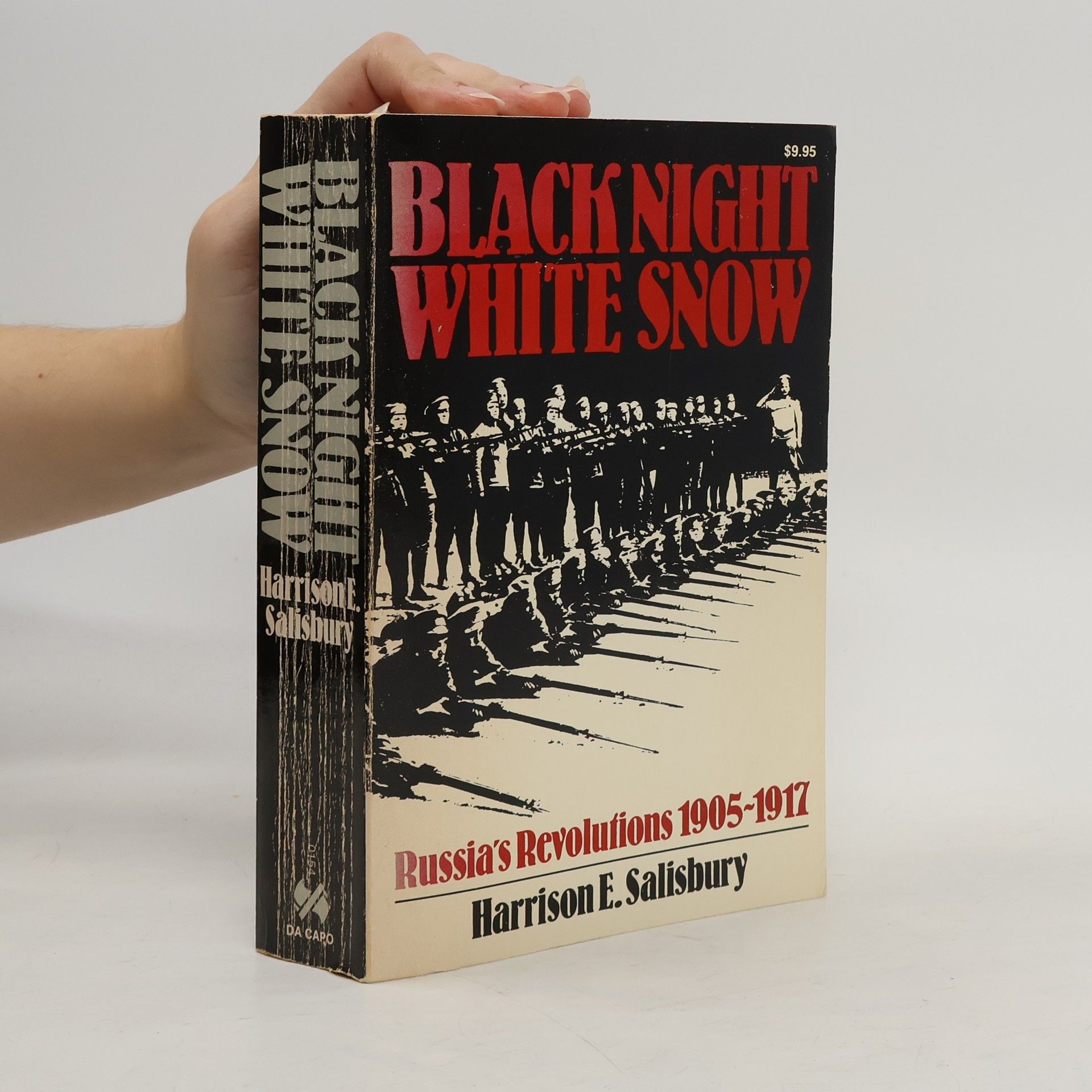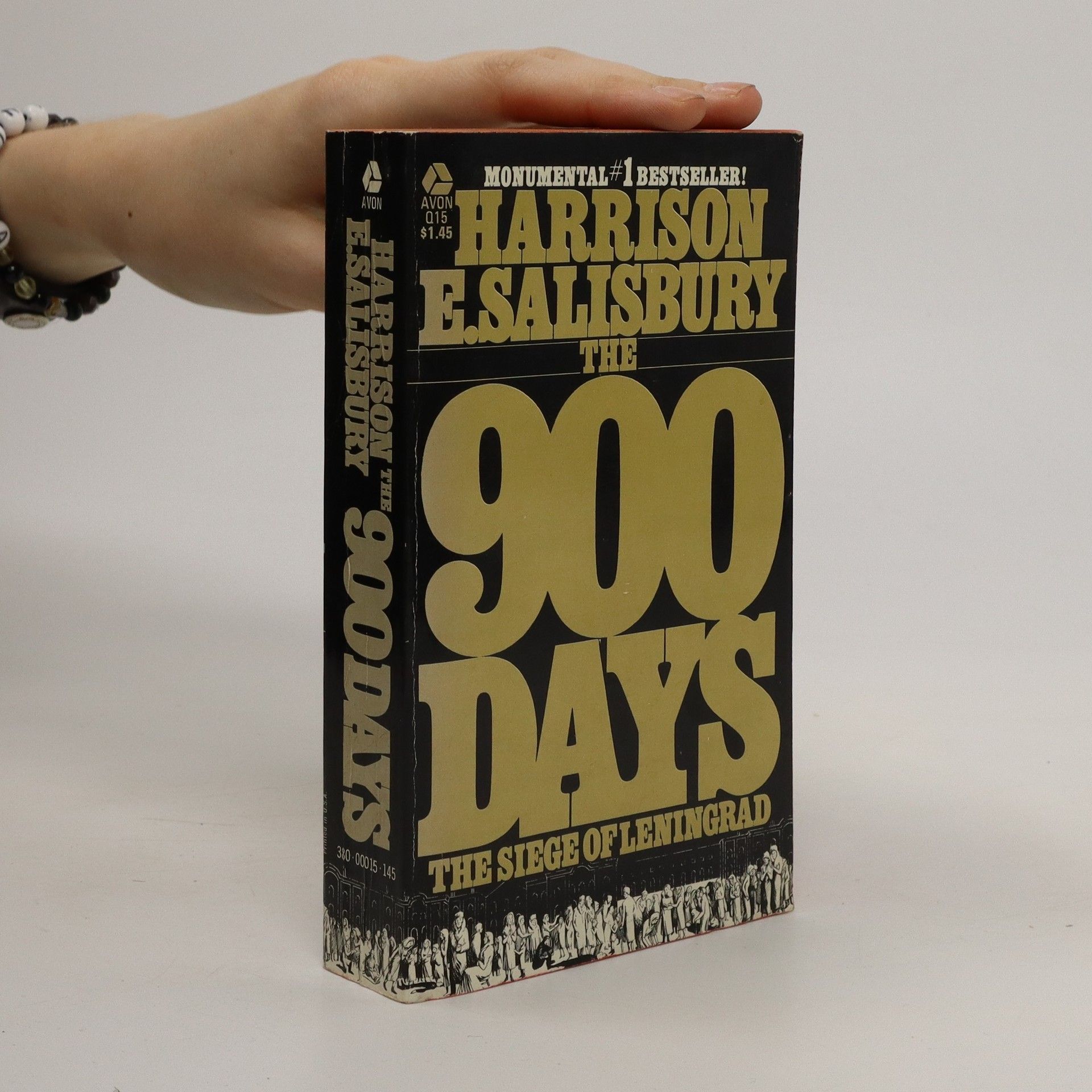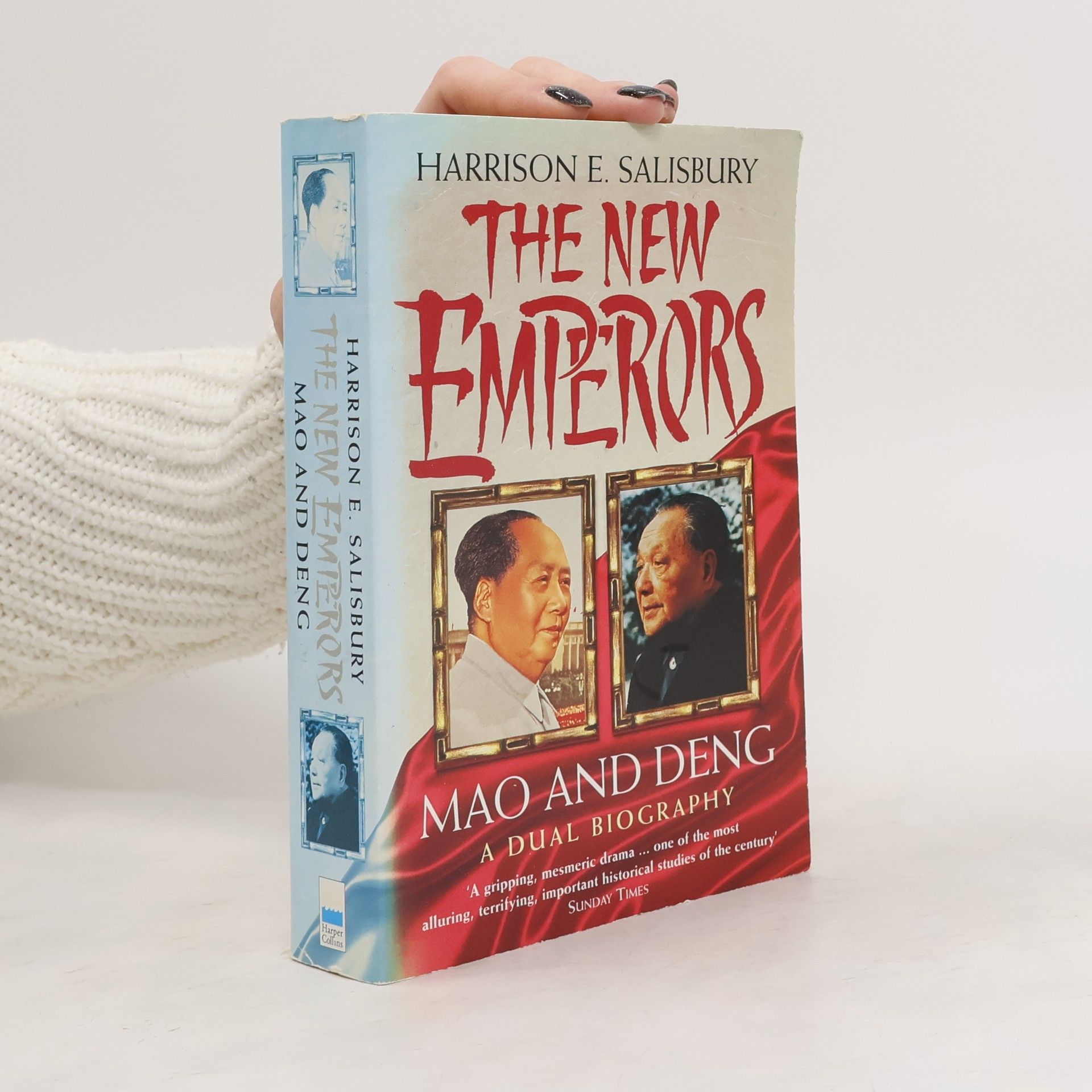Focuses on the complex relationship between these two men as part of the development of modern China - Communist takeover - Mass famine - Great Leap Forward - Cultural Revolution - Third Line - Jiang Qing - Gang of Four - Tiananmen Square.
Harrison Evans Salisbury Knihy
Harrison E. Salisbury bol dlhoročný reportér a redaktor denníka The New York Times. Skôr v kariére pracoval pre United Press, kam nastúpil po získaní titulu B.A. na Minnesotskej univerzite v roku 1930. Svoju novinársku kariéru začal ako externý reportér pre Minneapolis Journal v rokoch 1928–1929. Hoci počas svojej dlhej kariéry v denníku The New York Times zastával mnoho rôznych pozícií a pôsobil na mnohých miestach, pán Salisbury je možno najviac známy svojou prácou moskovského korešpondenta, ktorý pokrýval ZSSR v prvých rokoch studenej vojny. Po pôsobení ako vedúci moskovskej redakcie denníka The New York Times v rokoch 1949 až 1954 sa vrátil do USA a napísal sériu článkov, za ktoré v roku 1955 získal Pulitzerovu cenu. Vo svojich neskorších rokoch v denníku The New York Times venoval veľa času Ázii, pokrýval vietnamskú vojnu aj mnoho rôznych tém a udalostí týkajúcich sa Číny.



The destruction of the Czars which brought about the reign of revolutions from 1905–1917 in Russia looms as the crucial political event of the twentieth century. In little more than a decade the Romanov dynasty was toppled, and its time-honored institutions repudiated. How did it happen? How could Nicholas and Alexandra, the nobility, middle class anarchists—even Lenin himself—not foresee the catastrophic changes that were shaking the empire? Why could nothing be done? And why were the efforts so ineffectual? Black Night, White Snow captures the rich drama of this whole period. With the artistry of a Balzac, Harrison Salisbury exposes the strata of Russian society, with its decedents, prophetic poets, religious fanatics, and newly liberated serfs. From archival sources within the Soviet Union, interviews, and his personal photography collection, he recreates the story as it happened. Hard data on Russia's economy, a first-hand knowledge of the county, and a historian's gift of compression are combined in a fast-paced narrative that reads with the ease of a good novel and the urgency of a newspaper headline.